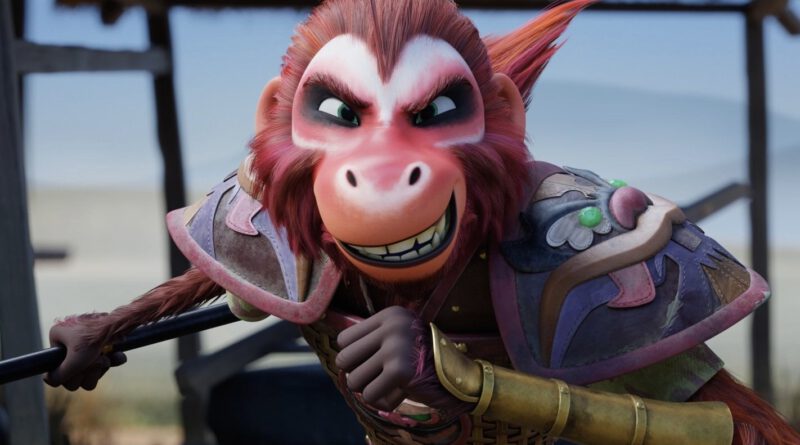‘The Monkey King’ review: Fantasy with a frustrating hero
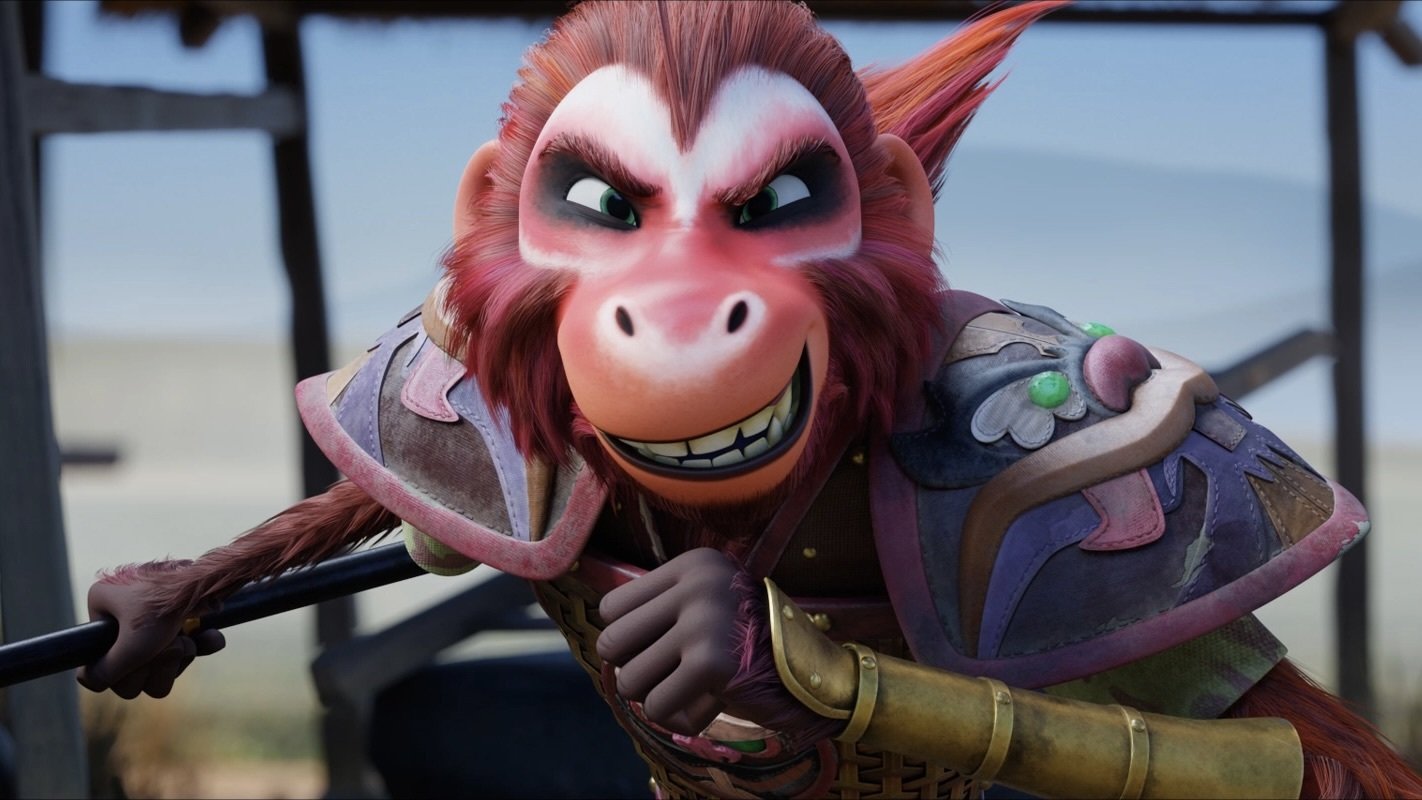
Spanning the deepest depths of the ocean to the farthest reaches of the universe, Netflix’s The Monkey King has scope and style to spare.
Director Anthony Stacchi’s animated epic adapts a portion of the classic Chinese novel Journey to the West, attributed to author Wu Cheng’en. Journey to the West is no stranger to adaptations — The Monkey King‘s own executive producer Stephen Chow directed 2013’s Journey to the West: Conquering the Demons. However, The Monkey King‘s take on the story is aimed more at younger viewers — and with its Netflix release, it will likely introduce the legend of the Monkey King to worldwide audiences who may be less familiar with the character (myself included).
That introduction winds up being a double-edged sword, because while the film boasts impressive world-building and some standout characters, its protagonist’s arrogance and unwillingness to change are tough pills to swallow.
What is The Monkey King about?
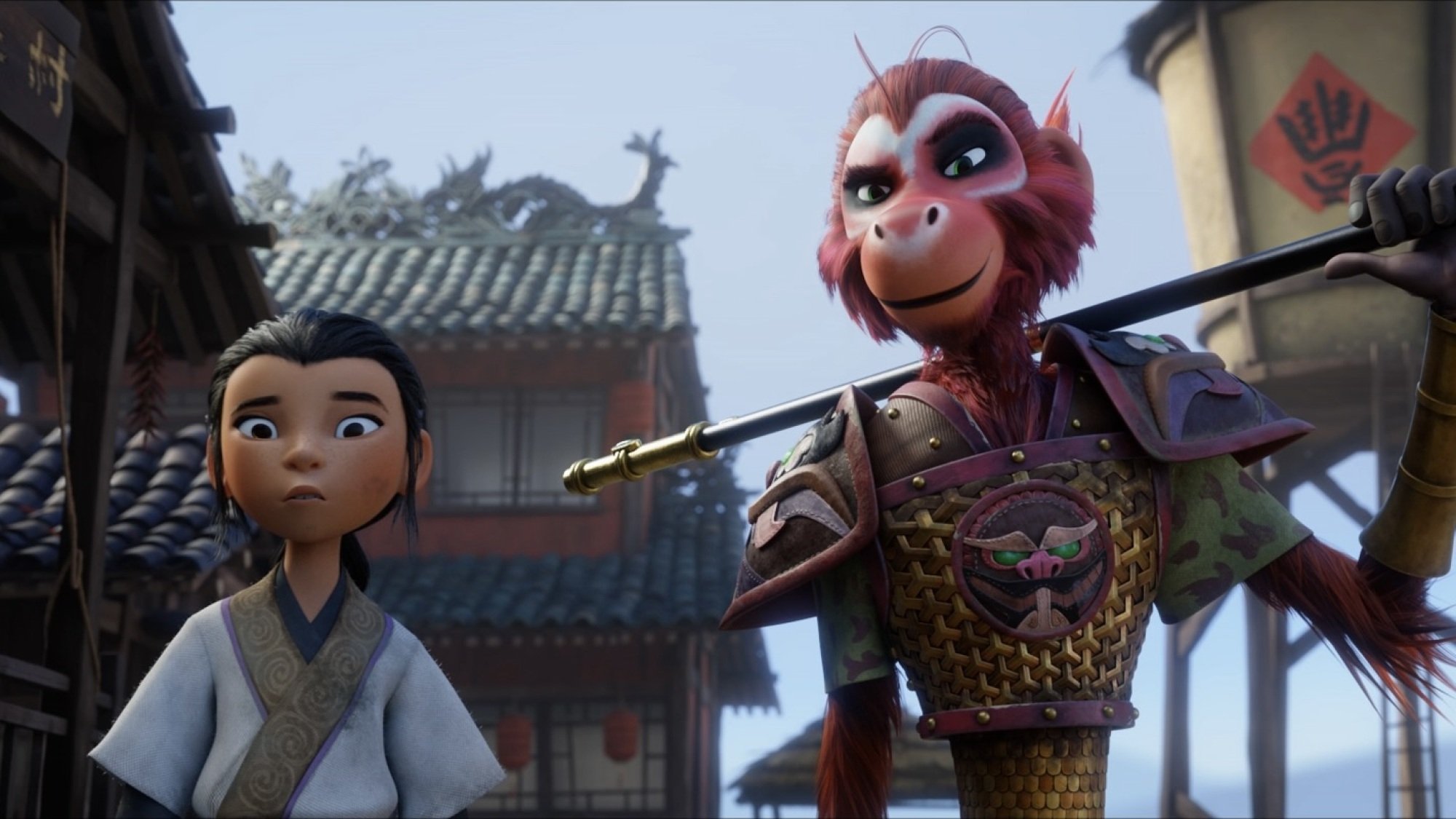
The Monkey King catapults us into a world where gods and demons reign supreme. However, one small monkey (voiced by Jimmy O. Yang) is about to upset the status quo in a big way. Hatched from a rock and boasting the ability to shoot lasers from his eyes, this monkey is immediately labeled an outsider by the rest of monkeykind. To prove himself to them — and more importantly, to the Immortal Ones — the self-titled Monkey King sets off on a quest to defeat 100 demons, all with the help of his trusty fighting Stick (voiced by Nan Li).
Monkey King’s quest for greatness leads him from hell to heaven, with a few pit stops along the way. He’ll make an ally in peasant girl Lin (voiced Jolie Hoang-Rappaport), who wants to do great things in the world and save her village. However, he’ll also earn his fair share of enemies. Chief among them is the Dragon King (voiced by Bowen Yang), a slippery showman who doesn’t take kindly to Monkey King stealing Stick from his undersea kingdom.
Bowen Yang’s Dragon King steals the show.
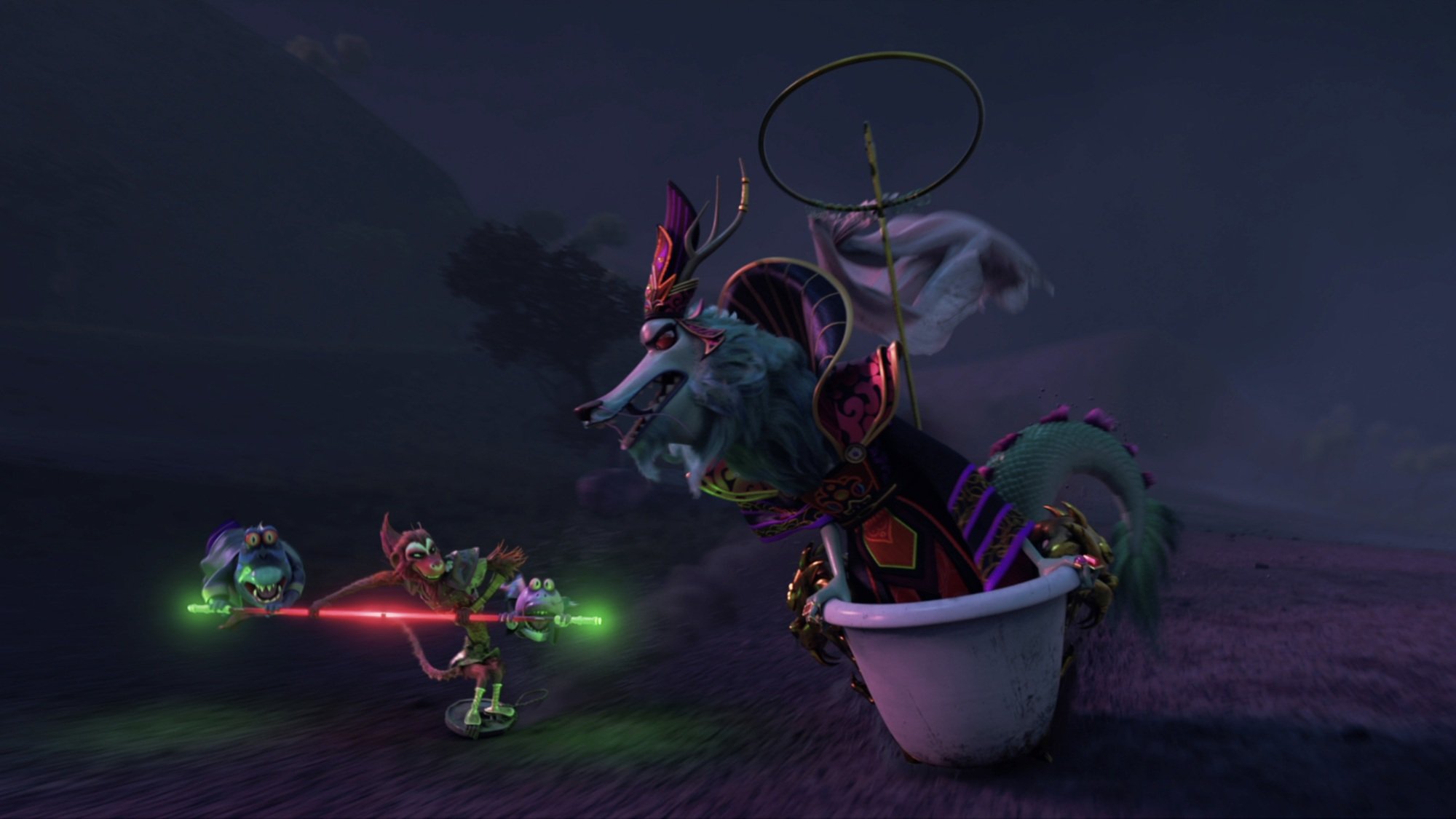
The Monkey King may be a Netflix movie, but the Dragon King is reminiscent of the best Disney villains. Following in the steps of original underwater baddie Ursula, Dragon King takes center stage as soon as he swims into frame. Blessed with flashy character design and two Flotsam and Jetsam-esque henchmen, Dragon King possesses all the pizzazz needed to make a memorable first impression. Yet he still maintains an undercurrent of menace thanks to his desire to send all land-dwellers to a watery grave.
Much of the Dragon King’s charm comes from Yang’s vocal performance, which shifts from aggravated ruler doling out orders to gleeful villain singing about world domination. He crushes the Dragon King’s showstopping musical number — an instant highlight of the movie — and still has time for an extended gag about the Dragon King’s need to moisturize on dry land. Any villain who pairs evil flair with skin care is an instant delight in my book.
The Dragon King is just one of The Monkey King‘s many great joys, with others including the film’s many intricately choreographed fight scenes. One early demon-slaying montage stands out, animated in a painterly style reminiscent of Chinese brushwork. Stick in particular adds an extra element of fun to these sequences. Not content with letting it just be a weapon, The Monkey King constantly finds new ways to incorporate Stick’s formidable powers into the action, turning it into a flying device, a convenient doorstop, and more. It’s a welcome touch of dynamism for the film, and a much-needed one given Monkey King’s own frustrating refusal to change.
Monkey King threatens to bring down The Monkey King.
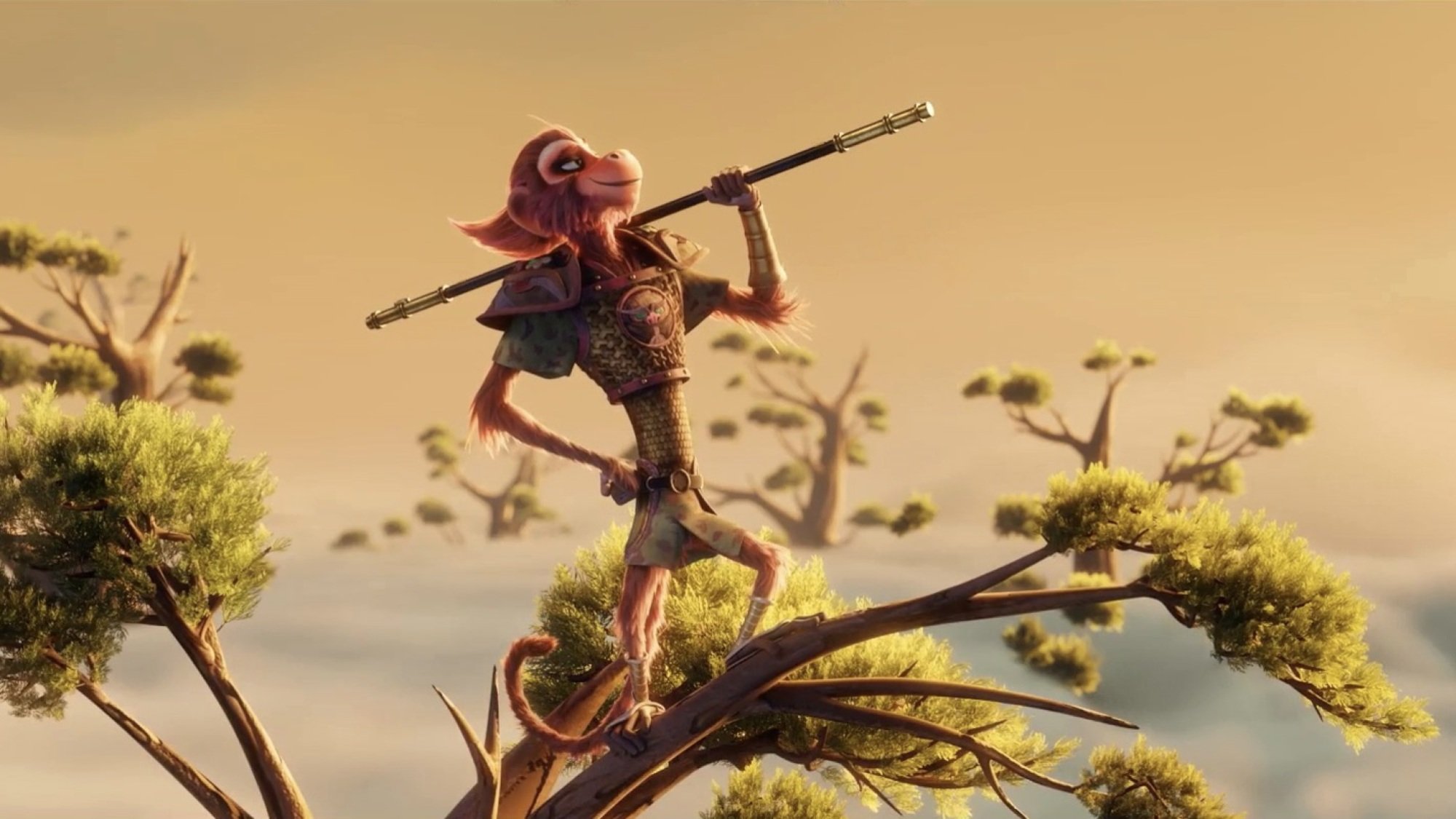
Shunned by the other monkeys he meets, Monkey King bases his sense of self on his fighting prowess, resulting in a majorly inflated ego. Arrogant, brash, and ignorant of others’ feelings, he’s the pinnacle of self-obsession. In theory, these character flaws make for a great jumping off point for a redemption arc and a lesson on the dangers of egotism. However, The Monkey King fails to engage with that kind of arc in a meaningful way.
Any time Monkey King faces a teachable moment, such as when Lin tells him about the troubles her village is facing, he takes it as an opportunity to double down on his own goals. At times, The Monkey King tries to tell us that he’s changed, that he cares about people other than himself. But the evidence for this is flimsy, culminating in a climax that (purposefully) sees all of Monkey King’s worst qualities come to life.
Granted, this is in keeping with the original content of Journey to the West, as is the film’s too-hasty resolution, which sees some truly crucial Monkey King development pushed offscreen. Notably, The Monkey King opens with Buddha (voiced by BD Wong) telling the Jade Emperor (Hoon Lee) that Monkey King has a great destiny. However, by the end of the film, that destiny is only just kicking off, leaving room for a sequel that would continue Monkey King’s story, along with the rest of Journey to the West. Setting up a sequel is all fine and dandy, but given Buddha’s assertion about the Monkey King’s future right at the start of the film, ending on that note feels like much of The Monkey King‘s potential has been left unfulfilled. The film reads less like a self-contained story than it does a feature-length prologue.
Don’t get me wrong, there is still so much to love about The Monkey King. But your mileage on the film may vary based on how willing you are to look past its frustrating lead.
